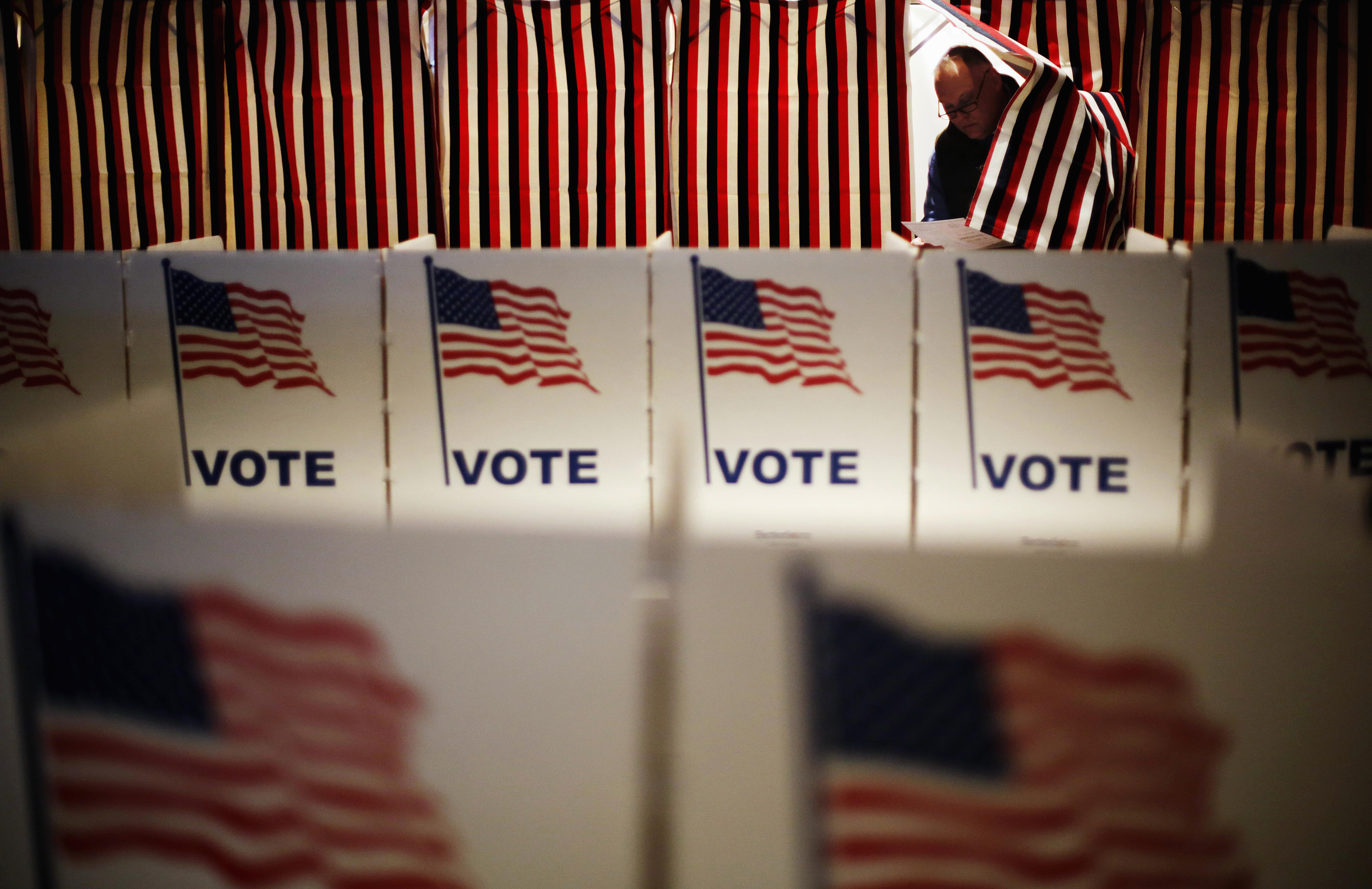America the breachable
How to improve America's democratic resilience


America was palpably vulnerable to Russia's meddling in the 2016 election. We had it coming.
As Henry Farrell points out in a brilliant essay, "a loose collective of Russians, with incredibly meager resources, have been working together in a disorganized way to probe American democracy for weaknesses" — and they only succeeded because America was so vulnerable in the first place.
Farrell's essay raises many questions, among them how to patch up America's democratic institutions, and not just to prevent this sort of foreign meddling in the future. Instead of focusing entirely on Russia, "policymakers need to start thinking about strengthening the system of democracy itself." We can't say with any completeness what needs to be done to truly and fully bolster America's resilience. But there are a few very obvious candidates that would definitely help: securing elections, resurrecting antitrust, and regulating social media. Let me take them in turn.
The Week
Escape your echo chamber. Get the facts behind the news, plus analysis from multiple perspectives.

Sign up for The Week's Free Newsletters
From our morning news briefing to a weekly Good News Newsletter, get the best of The Week delivered directly to your inbox.
From our morning news briefing to a weekly Good News Newsletter, get the best of The Week delivered directly to your inbox.
American elections have been a notorious mess for decades. Contrary to promises after the botched 2000 election in Florida, new rules have made the problems worse in some ways — further compounded by a consistent Republican tendency to try to cheat by sandbagging the electoral machinery where liberals might use it. This is leading to distrust in elections themselves, which could quickly lead to some very dark places.
Luckily, voting and tabulating votes are relatively simple procedures, and can easily be improved and made more secure, as this Brennan Center report demonstrates. States should upgrade their voter registration machinery so that people can be automatically registered to vote, register online, easily stay registered after moving, and register on Election Day (the federal government might help by providing a free template that states can copy and paste). Making early voting or voting by mail a universal option would ease strain, and moving the formal election to a weekend would make it easier for remaining people.
Then, the count could be secured with strong encryption for voting machines, backed up with paper ballots that could be double-checked. If election administration is fair, where every eligible person can vote quickly and easily, and administration is clean, efficient, and secure, it will be that much more difficult (though not impossible, of course) for people to develop paranoid beliefs about it.
Second, antitrust. The monopolization of the American economy is causing many problems, but a particularly poisonous one is the rise of corporate propaganda networks. As Farrell argues, one vulnerability Russia exploited is the fact that "distrust and profound disagreements over facts have led to a kind of crisis of democratic knowledge that leaves democracy open to outside manipulation." Both parties suffer from this to some degree, but it is simply inarguable that the major problem is on the right. Witness Rush Limbaugh (still the most popular radio personality in the country), dismissing government, academia, science, and the media as "the Four Corners of Deceit."
A free daily email with the biggest news stories of the day – and the best features from TheWeek.com
But a major factor in the rise of Limbaugh, in turn, is deregulation. Rolling back New Deal-era rules allowed Clear Channel to roll up a huge networks of radio stations, especially after the Telecommunications Act of 1996. The result was that Limbaugh (and other reactionary conspiracy theorists) were given similarly huge market access, and created giant audiences through a recursive, well-funded process — and convinced a huge portion of the Republican base to dismiss any inconvenient fact out of hand. More recently, new deregulation under President Trump has allowed the Sinclair Broadcast Group to roll up a huge swathe of local TV news stations, which are then forced to regularly run pro-Trump agitprop segments.
Disallowing one company from controlling too many radio or TV stations (say, no more than 5 percent of national stations and no more than one in any single major metro area) is no undue burden on freedom of speech. On the contrary, it ensures a more healthy space for democratic deliberation, free from the distortion of propagandists given a gigantic megaphone by deep-pocketed businessmen with an axe to grind.
Finally, social media. As Farrell argues, it's reasonably clear that digital behemoths like Facebook and YouTube are a major factor behind rising extremist politics. The reasons are still being explored, but an obvious one can be found by simply looking at the algorithmic suggestion processes on these services. Watch some political videos on YouTube, and you will often very quickly run into extreme racism or conspiracy nonsense. That is because the algorithms are trying to monopolize your attention by showing you things similar to what you already watched, and the most riveting content is often the most insane or hateful.
The companies pretend that their algorithms are "neutral," but not only is this impossible by definition, they are obviously hugely biased towards profit. Antitrust can help here, by sharply reducing the scale and power of the platform monopolists by forcing them to divest the other businesses (Instagram, etc). Then at least there will be more competition for our attention. But regulators should also force platforms to divulge their data, so scholars can study closely how things like "Pizzagate" and similar false propaganda spreads. Those findings can be used to structure rules to make the platforms less vulnerable to conspiracies and extremism.
These companies will no doubt howl piteously at this imposition, but figuring out how to stop this stuff from spreading is frankly a top national security priority. Profit-seeking companies don't really care about democracy. On the contrary, they want to preserve the authoritarian power they currently possess over their platforms and users. We're learning now that desire simply is not compatible with free, democratic institutions.
Ryan Cooper is a national correspondent at TheWeek.com. His work has appeared in the Washington Monthly, The New Republic, and the Washington Post.
-
 Judge slams ICE violations amid growing backlash
Judge slams ICE violations amid growing backlashSpeed Read ‘ICE is not a law unto itself,’ said a federal judge after the agency violated at least 96 court orders
-
 Political cartoons for January 29
Political cartoons for January 29Cartoons Thursday's political cartoons include 2nd amendment dibs, disturbing news, and AI-inflated bills
-
 The Flower Bearers: ‘a visceral depiction of violence, loss and emotional destruction’
The Flower Bearers: ‘a visceral depiction of violence, loss and emotional destruction’The Week Recommends Rachel Eliza Griffiths’ ‘open wound of a memoir’ is also a powerful ‘love story’ and a ‘portrait of sisterhood’
-
 The billionaires’ wealth tax: a catastrophe for California?
The billionaires’ wealth tax: a catastrophe for California?Talking Point Peter Thiel and Larry Page preparing to change state residency
-
 Bari Weiss’ ‘60 Minutes’ scandal is about more than one report
Bari Weiss’ ‘60 Minutes’ scandal is about more than one reportIN THE SPOTLIGHT By blocking an approved segment on a controversial prison holding US deportees in El Salvador, the editor-in-chief of CBS News has become the main story
-
 Has Zohran Mamdani shown the Democrats how to win again?
Has Zohran Mamdani shown the Democrats how to win again?Today’s Big Question New York City mayoral election touted as victory for left-wing populists but moderate centrist wins elsewhere present more complex path for Democratic Party
-
 Millions turn out for anti-Trump ‘No Kings’ rallies
Millions turn out for anti-Trump ‘No Kings’ ralliesSpeed Read An estimated 7 million people participated, 2 million more than at the first ‘No Kings’ protest in June
-
 Ghislaine Maxwell: angling for a Trump pardon
Ghislaine Maxwell: angling for a Trump pardonTalking Point Convicted sex trafficker's testimony could shed new light on president's links to Jeffrey Epstein
-
 The last words and final moments of 40 presidents
The last words and final moments of 40 presidentsThe Explainer Some are eloquent quotes worthy of the holders of the highest office in the nation, and others... aren't
-
 The JFK files: the truth at last?
The JFK files: the truth at last?In The Spotlight More than 64,000 previously classified documents relating the 1963 assassination of John F. Kennedy have been released by the Trump administration
-
 'Seriously, not literally': how should the world take Donald Trump?
'Seriously, not literally': how should the world take Donald Trump?Today's big question White House rhetoric and reality look likely to become increasingly blurred
